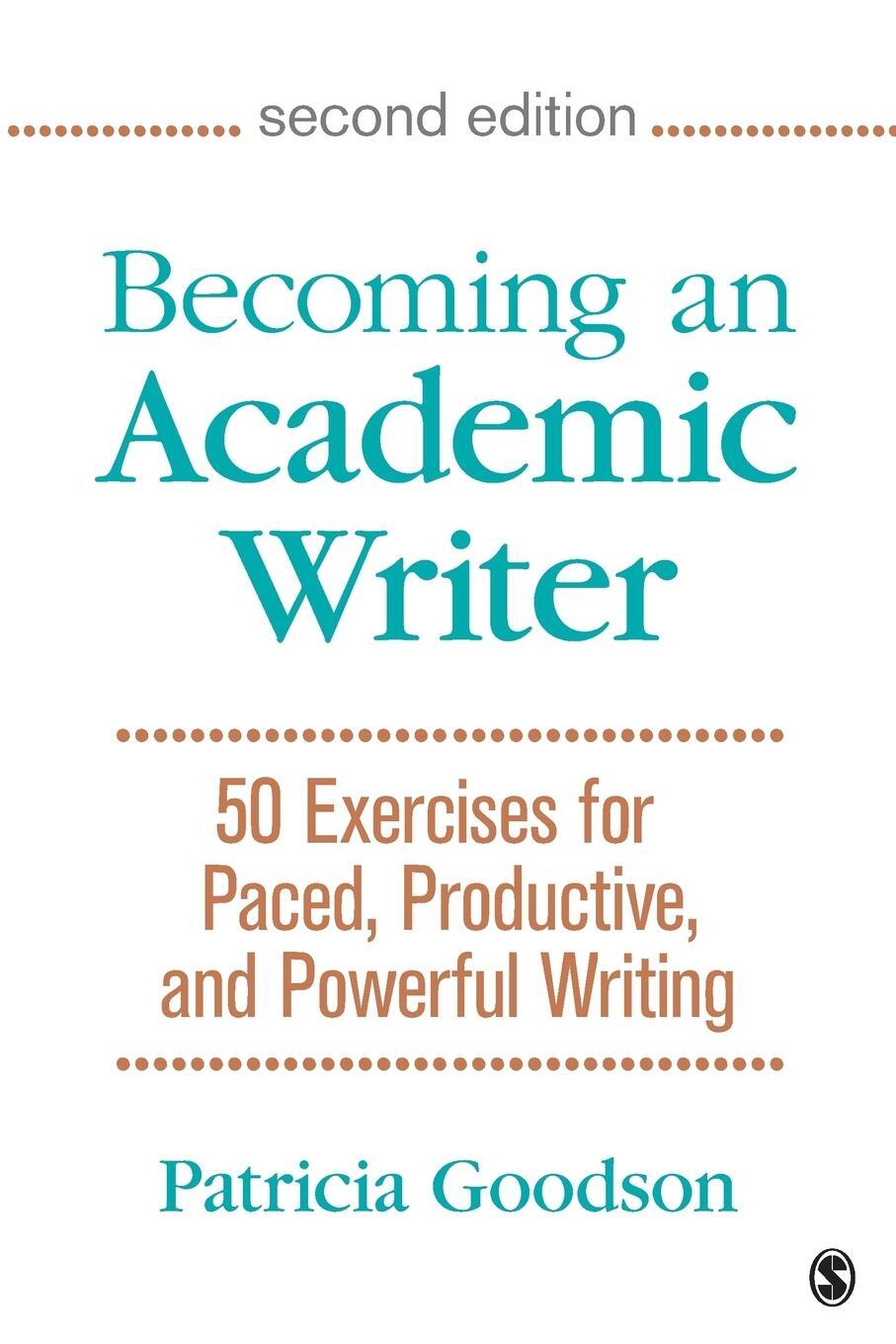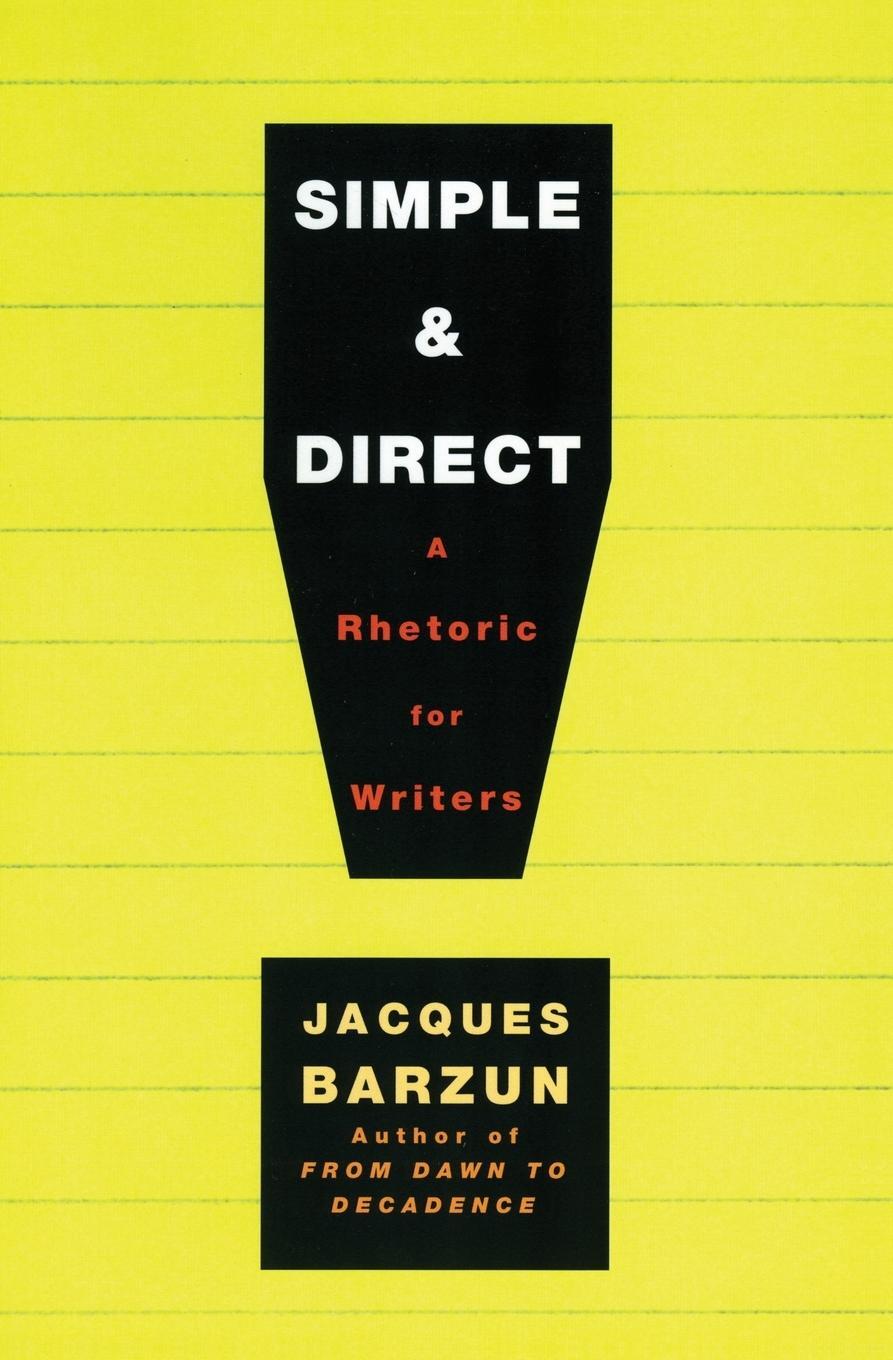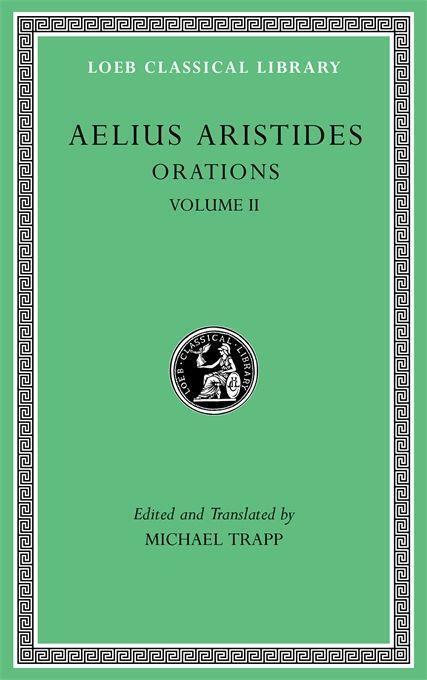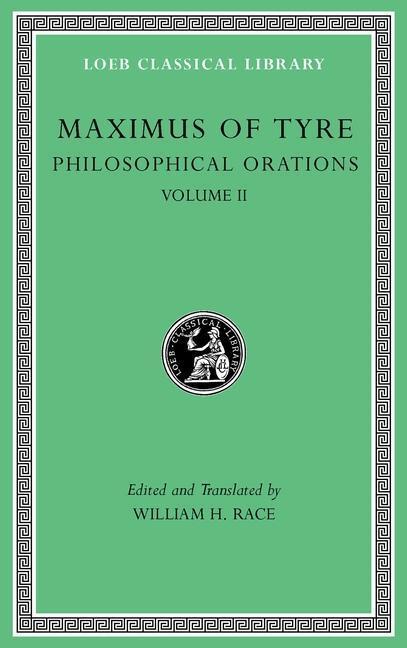Dekorationsartikel gehören nicht zum Leistungsumfang.
Sprache:
Englisch
69,20 €*
Versandkostenfrei per Post / DHL
Lieferzeit 1-2 Wochen
Kategorien:
Beschreibung
With its friendly, step-by-step format, Becoming an Academic Writer helps writers improve their writing by engaging in deep and deliberate practice-a type of practice adopted by expert performers in areas such as sports or music. Fe
With its friendly, step-by-step format, Becoming an Academic Writer helps writers improve their writing by engaging in deep and deliberate practice-a type of practice adopted by expert performers in areas such as sports or music. Fe
Über den Autor
Patricia Goodson is professor of health education in the Department of Health & Kinesiology at Texas A&M University (TAMU). She obtained a bachelor's degree in Linguistics (from Universidade Estadual de Campinas) and a master's in Philosophy of Education (from Pontifícia Universidade Católica de Campinas) in Brazil; a master's in General Theological Studies (from Covenant Theological Seminary) and a PhD in Health Education (from the University of Texas at Austin) in the United States. At TAMU, she has taught mostly graduate-level courses such as Health Behavior Theory, Health Research Methods, Health Program Evaluation, Health Education Ethics, and Advanced Health Behavior Theory. In 2007, while acting as associate dean for Graduate Program Development, she created and implemented a college-wide writing support service for graduate students, based on the POWER model described in this book. Currently, as director of the College of Education and Human Development's Writing Initiative (POWER Services), she offers Basic and Advanced Writing Studios for graduate students in the college, on a regular basis, and occasionally teaches writing workshops for faculty at Texas A&M and other universities. Dr. Goodson has won several department-, college-, and university- level awards for her teaching and research. In 2012 she was awarded the title of Presidential Professor for Teaching Excellence at Texas A&M University-one of the highest teaching awards at that university. Also in 2012, she became the university's sole nominee for the Piper Professor Award, a state-level recognition for teaching. While she considers mentoring graduate students the most fulfilling part of her career, a couple of research interests vie for her attention. Her research focuses on topics such as sexual health of adults and adolescents, the history of the HIV/AIDS epidemic, and public health genomics. She has published extensively in high-impact journals, has reviewed for several prestigious publications, and has served as book review editor for The Journal of Sex Research. One of her intellectual passions is theory, and her "other" book presents a critique of health education's current use of theory in both research and practice.
Inhaltsverzeichnis
Chapter One: Get Ready to Practice
The POWER Model
Practicing Academic Writing
Part I: Practice Becoming a Productive Academic Writer
Chapter Two: Establish and Maintain the "Write" Habit
Think About It . . .
Seeing Yourself as a Writer
EXERCISE 1-Schedule Your Writing Sessions
EXERCISE 2-Increase Your Writing Time in No Time
EXERCISE 3-Write Quickly, Edit Slowly
EXERCISE 4-Organize Messy Drafts
EXERCISE 5-Keep and Share a Writing Log
EXERCISE 6-Read About Writing
EXERCISE 7-Document Your Writing Projects
EXERCISE 8-Write to Learn (Anything, Including How to Write)
Chapter Three: Practice Building Academic Vocabulary
Think About It...
EXERCISE 9-Increase Your Vocabulary One Word at a Time
EXERCISE 10-Use New Academic Words
EXERCISE 11-Build Your Own Professional Dictionary/Glossary
Chapter Four: Polish the Grammar
Think About It...
EXERCISE 12-Learn From the Masters
EXERCISE 13-Identify Patterns of Problems
EXERCISE 14-Practice Grammar Rules
EXERCISE 15-Copy
Chapter Five: Get Feedback
Think About It...
EXERCISE 16-Get Feedback on Early Drafts
EXERCISE 17-Get Feedback on Middle Drafts
EXERCISE 18-Get Feedback on Final Drafts
EXERCISE 19-Get Feedback Regularly
EXERCISE 20-Schedule Reading Appointments
Chapter Six: Edit and Proofread
Think About It...
EXERCISE 21-Tighten the Paragraphs
EXERCISE 22-Make It Flow: Organize
EXERCISE 23-Clear Out the Clutter
EXERCISE 24-Use a Thesaurus and a Reverse Dictionary
EXERCISE 25-Pay Attention to Word Placement
EXERCISE 26-Cut It in Half
EXERCISE 27-Read Aloud
EXERCISE 28-Copyedit: Proofread Line by Line
Part II: Practice Writing Sections of Journal Articles, Research Reports, and Grant
Chapter Seven: Exercises for Writing Introductions, Purpose Statements, or Specific Aims Sections
Think About It...
EXERCISE 29-Map
EXERCISE 30-Dump
EXERCISE 31-Craft the Purpose Statement
EXERCISE 32-Develop the Rationale
EXERCISE 33-Present the Literature Review
EXERCISE 34-Lay Out the Theoretical Framework
EXERCISE 35-Check It
Chapter Eight: Exercises for Writing the Methods Section
Think About It...
EXERCISE 36-Practice Describing
EXERCISE 37-Describe the Research Design
EXERCISE 38-Describe the Sample
EXERCISE 39-Describe the Measures
EXERCISE 40-Describe Data Collection and Data Management Procedures
EXERCISE 41-Describe the Data Analysis
Chapter Nine: Exercises for Writing the Results/Findings Section
Think About It...
EXERCISE 42-Picture the Findings
EXERCISE 43-Describe the Most Important Findings
EXERCISE 44-Summarize the Least Important Findings
Chapter Ten: Exercises for Writing the Discussion or Conclusion Section
Think About It...
EXERCISE 45-Question the Results/Findings
EXERCISE 46-Connect the Dots: Other Research
EXERCISE 47-Connect the Dots: Relevant Theory
EXERCISE 48-Guide Your Reader Into the Future
EXERCISE 49-Confess Limitations
Chapter Eleven: Exercise for Writing Abstracts
Think About It...
EXERCISE 50-Write an Abstract in 20 Minutes
The POWER Model
Practicing Academic Writing
Part I: Practice Becoming a Productive Academic Writer
Chapter Two: Establish and Maintain the "Write" Habit
Think About It . . .
Seeing Yourself as a Writer
EXERCISE 1-Schedule Your Writing Sessions
EXERCISE 2-Increase Your Writing Time in No Time
EXERCISE 3-Write Quickly, Edit Slowly
EXERCISE 4-Organize Messy Drafts
EXERCISE 5-Keep and Share a Writing Log
EXERCISE 6-Read About Writing
EXERCISE 7-Document Your Writing Projects
EXERCISE 8-Write to Learn (Anything, Including How to Write)
Chapter Three: Practice Building Academic Vocabulary
Think About It...
EXERCISE 9-Increase Your Vocabulary One Word at a Time
EXERCISE 10-Use New Academic Words
EXERCISE 11-Build Your Own Professional Dictionary/Glossary
Chapter Four: Polish the Grammar
Think About It...
EXERCISE 12-Learn From the Masters
EXERCISE 13-Identify Patterns of Problems
EXERCISE 14-Practice Grammar Rules
EXERCISE 15-Copy
Chapter Five: Get Feedback
Think About It...
EXERCISE 16-Get Feedback on Early Drafts
EXERCISE 17-Get Feedback on Middle Drafts
EXERCISE 18-Get Feedback on Final Drafts
EXERCISE 19-Get Feedback Regularly
EXERCISE 20-Schedule Reading Appointments
Chapter Six: Edit and Proofread
Think About It...
EXERCISE 21-Tighten the Paragraphs
EXERCISE 22-Make It Flow: Organize
EXERCISE 23-Clear Out the Clutter
EXERCISE 24-Use a Thesaurus and a Reverse Dictionary
EXERCISE 25-Pay Attention to Word Placement
EXERCISE 26-Cut It in Half
EXERCISE 27-Read Aloud
EXERCISE 28-Copyedit: Proofread Line by Line
Part II: Practice Writing Sections of Journal Articles, Research Reports, and Grant
Chapter Seven: Exercises for Writing Introductions, Purpose Statements, or Specific Aims Sections
Think About It...
EXERCISE 29-Map
EXERCISE 30-Dump
EXERCISE 31-Craft the Purpose Statement
EXERCISE 32-Develop the Rationale
EXERCISE 33-Present the Literature Review
EXERCISE 34-Lay Out the Theoretical Framework
EXERCISE 35-Check It
Chapter Eight: Exercises for Writing the Methods Section
Think About It...
EXERCISE 36-Practice Describing
EXERCISE 37-Describe the Research Design
EXERCISE 38-Describe the Sample
EXERCISE 39-Describe the Measures
EXERCISE 40-Describe Data Collection and Data Management Procedures
EXERCISE 41-Describe the Data Analysis
Chapter Nine: Exercises for Writing the Results/Findings Section
Think About It...
EXERCISE 42-Picture the Findings
EXERCISE 43-Describe the Most Important Findings
EXERCISE 44-Summarize the Least Important Findings
Chapter Ten: Exercises for Writing the Discussion or Conclusion Section
Think About It...
EXERCISE 45-Question the Results/Findings
EXERCISE 46-Connect the Dots: Other Research
EXERCISE 47-Connect the Dots: Relevant Theory
EXERCISE 48-Guide Your Reader Into the Future
EXERCISE 49-Confess Limitations
Chapter Eleven: Exercise for Writing Abstracts
Think About It...
EXERCISE 50-Write an Abstract in 20 Minutes
Details
| Erscheinungsjahr: | 2016 |
|---|---|
| Fachbereich: | Didaktik/Methodik/Schulpädagogik/Fachdidaktik |
| Genre: | Erziehung & Bildung |
| Rubrik: | Sozialwissenschaften |
| Medium: | Taschenbuch |
| Seiten: | 296 |
| Inhalt: | Kartoniert / Broschiert |
| ISBN-13: | 9781483376257 |
| ISBN-10: | 1483376257 |
| Sprache: | Englisch |
| Einband: | Kartoniert / Broschiert |
| Autor: | Goodson, Patricia |
| Auflage: | 2nd edition |
| Hersteller: | Blue Rose Publishers |
| Maße: | 229 x 152 x 17 mm |
| Von/Mit: | Patricia Goodson |
| Erscheinungsdatum: | 01.04.2016 |
| Gewicht: | 0,432 kg |
Über den Autor
Patricia Goodson is professor of health education in the Department of Health & Kinesiology at Texas A&M University (TAMU). She obtained a bachelor's degree in Linguistics (from Universidade Estadual de Campinas) and a master's in Philosophy of Education (from Pontifícia Universidade Católica de Campinas) in Brazil; a master's in General Theological Studies (from Covenant Theological Seminary) and a PhD in Health Education (from the University of Texas at Austin) in the United States. At TAMU, she has taught mostly graduate-level courses such as Health Behavior Theory, Health Research Methods, Health Program Evaluation, Health Education Ethics, and Advanced Health Behavior Theory. In 2007, while acting as associate dean for Graduate Program Development, she created and implemented a college-wide writing support service for graduate students, based on the POWER model described in this book. Currently, as director of the College of Education and Human Development's Writing Initiative (POWER Services), she offers Basic and Advanced Writing Studios for graduate students in the college, on a regular basis, and occasionally teaches writing workshops for faculty at Texas A&M and other universities. Dr. Goodson has won several department-, college-, and university- level awards for her teaching and research. In 2012 she was awarded the title of Presidential Professor for Teaching Excellence at Texas A&M University-one of the highest teaching awards at that university. Also in 2012, she became the university's sole nominee for the Piper Professor Award, a state-level recognition for teaching. While she considers mentoring graduate students the most fulfilling part of her career, a couple of research interests vie for her attention. Her research focuses on topics such as sexual health of adults and adolescents, the history of the HIV/AIDS epidemic, and public health genomics. She has published extensively in high-impact journals, has reviewed for several prestigious publications, and has served as book review editor for The Journal of Sex Research. One of her intellectual passions is theory, and her "other" book presents a critique of health education's current use of theory in both research and practice.
Inhaltsverzeichnis
Chapter One: Get Ready to Practice
The POWER Model
Practicing Academic Writing
Part I: Practice Becoming a Productive Academic Writer
Chapter Two: Establish and Maintain the "Write" Habit
Think About It . . .
Seeing Yourself as a Writer
EXERCISE 1-Schedule Your Writing Sessions
EXERCISE 2-Increase Your Writing Time in No Time
EXERCISE 3-Write Quickly, Edit Slowly
EXERCISE 4-Organize Messy Drafts
EXERCISE 5-Keep and Share a Writing Log
EXERCISE 6-Read About Writing
EXERCISE 7-Document Your Writing Projects
EXERCISE 8-Write to Learn (Anything, Including How to Write)
Chapter Three: Practice Building Academic Vocabulary
Think About It...
EXERCISE 9-Increase Your Vocabulary One Word at a Time
EXERCISE 10-Use New Academic Words
EXERCISE 11-Build Your Own Professional Dictionary/Glossary
Chapter Four: Polish the Grammar
Think About It...
EXERCISE 12-Learn From the Masters
EXERCISE 13-Identify Patterns of Problems
EXERCISE 14-Practice Grammar Rules
EXERCISE 15-Copy
Chapter Five: Get Feedback
Think About It...
EXERCISE 16-Get Feedback on Early Drafts
EXERCISE 17-Get Feedback on Middle Drafts
EXERCISE 18-Get Feedback on Final Drafts
EXERCISE 19-Get Feedback Regularly
EXERCISE 20-Schedule Reading Appointments
Chapter Six: Edit and Proofread
Think About It...
EXERCISE 21-Tighten the Paragraphs
EXERCISE 22-Make It Flow: Organize
EXERCISE 23-Clear Out the Clutter
EXERCISE 24-Use a Thesaurus and a Reverse Dictionary
EXERCISE 25-Pay Attention to Word Placement
EXERCISE 26-Cut It in Half
EXERCISE 27-Read Aloud
EXERCISE 28-Copyedit: Proofread Line by Line
Part II: Practice Writing Sections of Journal Articles, Research Reports, and Grant
Chapter Seven: Exercises for Writing Introductions, Purpose Statements, or Specific Aims Sections
Think About It...
EXERCISE 29-Map
EXERCISE 30-Dump
EXERCISE 31-Craft the Purpose Statement
EXERCISE 32-Develop the Rationale
EXERCISE 33-Present the Literature Review
EXERCISE 34-Lay Out the Theoretical Framework
EXERCISE 35-Check It
Chapter Eight: Exercises for Writing the Methods Section
Think About It...
EXERCISE 36-Practice Describing
EXERCISE 37-Describe the Research Design
EXERCISE 38-Describe the Sample
EXERCISE 39-Describe the Measures
EXERCISE 40-Describe Data Collection and Data Management Procedures
EXERCISE 41-Describe the Data Analysis
Chapter Nine: Exercises for Writing the Results/Findings Section
Think About It...
EXERCISE 42-Picture the Findings
EXERCISE 43-Describe the Most Important Findings
EXERCISE 44-Summarize the Least Important Findings
Chapter Ten: Exercises for Writing the Discussion or Conclusion Section
Think About It...
EXERCISE 45-Question the Results/Findings
EXERCISE 46-Connect the Dots: Other Research
EXERCISE 47-Connect the Dots: Relevant Theory
EXERCISE 48-Guide Your Reader Into the Future
EXERCISE 49-Confess Limitations
Chapter Eleven: Exercise for Writing Abstracts
Think About It...
EXERCISE 50-Write an Abstract in 20 Minutes
The POWER Model
Practicing Academic Writing
Part I: Practice Becoming a Productive Academic Writer
Chapter Two: Establish and Maintain the "Write" Habit
Think About It . . .
Seeing Yourself as a Writer
EXERCISE 1-Schedule Your Writing Sessions
EXERCISE 2-Increase Your Writing Time in No Time
EXERCISE 3-Write Quickly, Edit Slowly
EXERCISE 4-Organize Messy Drafts
EXERCISE 5-Keep and Share a Writing Log
EXERCISE 6-Read About Writing
EXERCISE 7-Document Your Writing Projects
EXERCISE 8-Write to Learn (Anything, Including How to Write)
Chapter Three: Practice Building Academic Vocabulary
Think About It...
EXERCISE 9-Increase Your Vocabulary One Word at a Time
EXERCISE 10-Use New Academic Words
EXERCISE 11-Build Your Own Professional Dictionary/Glossary
Chapter Four: Polish the Grammar
Think About It...
EXERCISE 12-Learn From the Masters
EXERCISE 13-Identify Patterns of Problems
EXERCISE 14-Practice Grammar Rules
EXERCISE 15-Copy
Chapter Five: Get Feedback
Think About It...
EXERCISE 16-Get Feedback on Early Drafts
EXERCISE 17-Get Feedback on Middle Drafts
EXERCISE 18-Get Feedback on Final Drafts
EXERCISE 19-Get Feedback Regularly
EXERCISE 20-Schedule Reading Appointments
Chapter Six: Edit and Proofread
Think About It...
EXERCISE 21-Tighten the Paragraphs
EXERCISE 22-Make It Flow: Organize
EXERCISE 23-Clear Out the Clutter
EXERCISE 24-Use a Thesaurus and a Reverse Dictionary
EXERCISE 25-Pay Attention to Word Placement
EXERCISE 26-Cut It in Half
EXERCISE 27-Read Aloud
EXERCISE 28-Copyedit: Proofread Line by Line
Part II: Practice Writing Sections of Journal Articles, Research Reports, and Grant
Chapter Seven: Exercises for Writing Introductions, Purpose Statements, or Specific Aims Sections
Think About It...
EXERCISE 29-Map
EXERCISE 30-Dump
EXERCISE 31-Craft the Purpose Statement
EXERCISE 32-Develop the Rationale
EXERCISE 33-Present the Literature Review
EXERCISE 34-Lay Out the Theoretical Framework
EXERCISE 35-Check It
Chapter Eight: Exercises for Writing the Methods Section
Think About It...
EXERCISE 36-Practice Describing
EXERCISE 37-Describe the Research Design
EXERCISE 38-Describe the Sample
EXERCISE 39-Describe the Measures
EXERCISE 40-Describe Data Collection and Data Management Procedures
EXERCISE 41-Describe the Data Analysis
Chapter Nine: Exercises for Writing the Results/Findings Section
Think About It...
EXERCISE 42-Picture the Findings
EXERCISE 43-Describe the Most Important Findings
EXERCISE 44-Summarize the Least Important Findings
Chapter Ten: Exercises for Writing the Discussion or Conclusion Section
Think About It...
EXERCISE 45-Question the Results/Findings
EXERCISE 46-Connect the Dots: Other Research
EXERCISE 47-Connect the Dots: Relevant Theory
EXERCISE 48-Guide Your Reader Into the Future
EXERCISE 49-Confess Limitations
Chapter Eleven: Exercise for Writing Abstracts
Think About It...
EXERCISE 50-Write an Abstract in 20 Minutes
Details
| Erscheinungsjahr: | 2016 |
|---|---|
| Fachbereich: | Didaktik/Methodik/Schulpädagogik/Fachdidaktik |
| Genre: | Erziehung & Bildung |
| Rubrik: | Sozialwissenschaften |
| Medium: | Taschenbuch |
| Seiten: | 296 |
| Inhalt: | Kartoniert / Broschiert |
| ISBN-13: | 9781483376257 |
| ISBN-10: | 1483376257 |
| Sprache: | Englisch |
| Einband: | Kartoniert / Broschiert |
| Autor: | Goodson, Patricia |
| Auflage: | 2nd edition |
| Hersteller: | Blue Rose Publishers |
| Maße: | 229 x 152 x 17 mm |
| Von/Mit: | Patricia Goodson |
| Erscheinungsdatum: | 01.04.2016 |
| Gewicht: | 0,432 kg |
Warnhinweis










